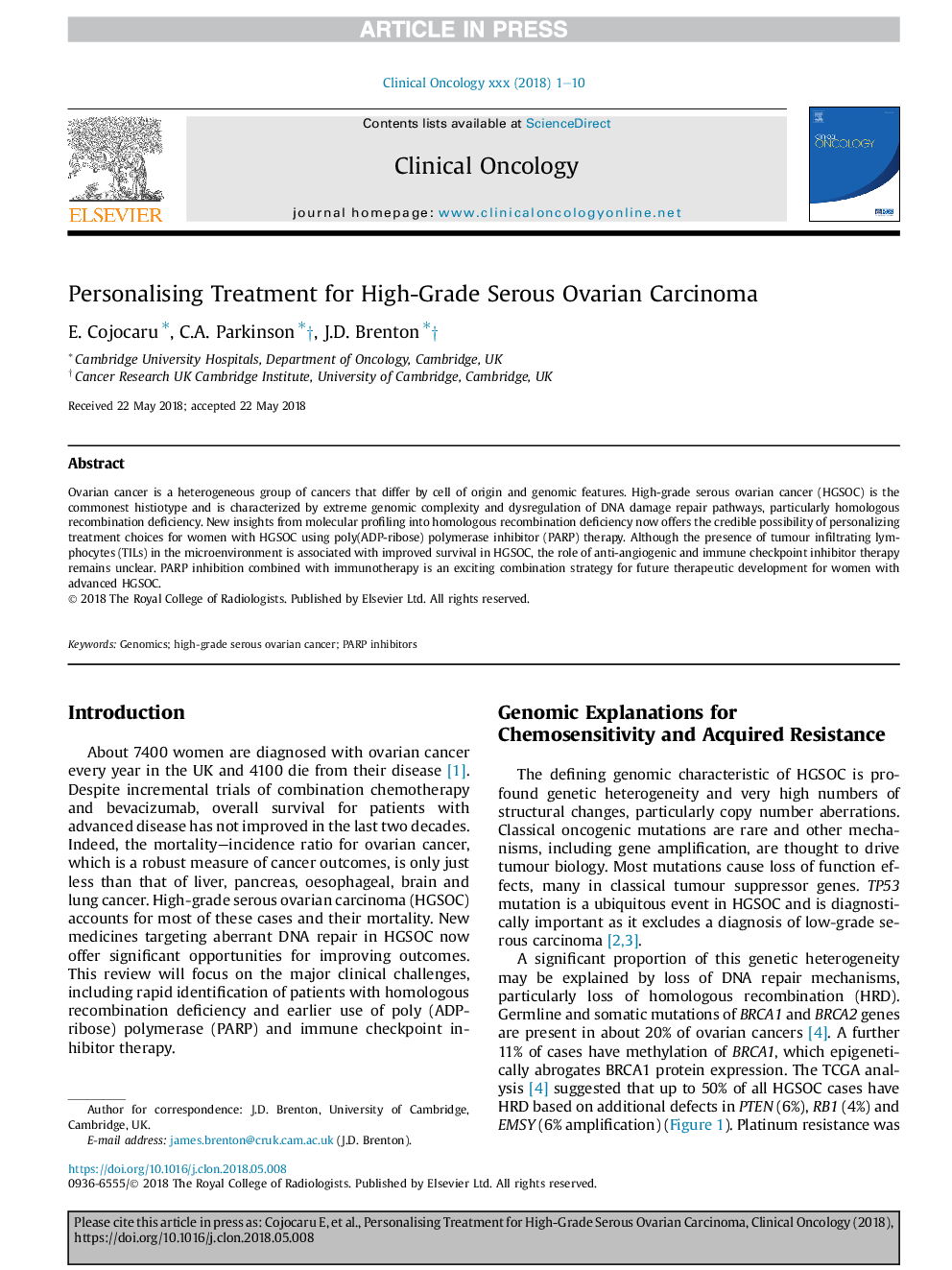| Article ID | Journal | Published Year | Pages | File Type |
|---|---|---|---|---|
| 8786013 | Clinical Oncology | 2018 | 10 Pages |
Abstract
Ovarian cancer is a heterogeneous group of cancers that differ by cell of origin and genomic features. High-grade serous ovarian cancer (HGSOC) is the commonest histiotype and is characterized by extreme genomic complexity and dysregulation of DNA damage repair pathways, particularly homologous recombination deficiency. New insights from molecular profiling into homologous recombination deficiency now offers the credible possibility of personalizing treatment choices for women with HGSOC using poly(ADP-ribose) polymerase inhibitor (PARP) therapy. Although the presence of tumour infiltrating lymphocytes (TILs) in the microenvironment is associated with improved survival in HGSOC, the role of anti-angiogenic and immune checkpoint inhibitor therapy remains unclear. PARP inhibition combined with immunotherapy is an exciting combination strategy for future therapeutic development for women with advanced HGSOC.
Related Topics
Health Sciences
Medicine and Dentistry
Oncology
Authors
E. Cojocaru, C.A. Parkinson, J.D. Brenton,
